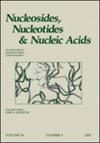DPP9 rs2109069 和 IFNAR2 rs2236757 多态性与 COVID-19 死亡率的相关性研究。
IF 1.1
4区 生物学
Q4 BIOCHEMISTRY & MOLECULAR BIOLOGY
引用次数: 0
摘要
了解免疫系统应对 COVID-19 感染的复杂机制(可能与细胞因子和趋化因子基因的多态性有关),可以解释患者的促炎状况。因此,本研究评估了二肽基肽酶 9(DPP9)和干扰素α和β受体亚基 2(IFNAR2)这两种促炎基因的单核苷酸多态性频率与 COVID-19 严重程度之间的关系。这项研究涉及 954 名 COVID-19 患者,包括 528 名康复患者和 426 名死亡患者。为了研究 IFNAR2 rs2236757 和 DPP9 rs2109069 的多态性,我们使用了聚合酶链反应和限制性片段长度多态性检测。结果显示,IFNAR2 rs2236757 A 等位基因与疾病的严重程度降低有关,而 DPP9 rs2109069 A 等位基因在死亡者中的发生率高于康复者。另一方面,在携带 DPP9 基因多态性中的 G 等位基因和 IFNR2 基因多态性中的 A 等位基因的人群中,疾病的好转率明显较高。总之,研究结果表明,IFNAR2 rs2236757 A 等位基因与疾病严重程度的减轻有关,而 DPP9 rs2109069 A 等位基因在死亡者中的频率高于康复者。这表明与炎症反应相关的基因以及这些基因的遗传变异在 COVID-19 的严重程度中发挥着重要作用。本文章由计算机程序翻译,如有差异,请以英文原文为准。
Study on the correlation between DPP9 rs2109069 and IFNAR2 rs2236757 polymorphisms with COVID-19 mortality.
Understanding the complex mechanisms of the immune system in dealing with the COVID-19 infection, which is probably related to the polymorphism in cytokine and chemokine genes, can explain the pro-inflammatory condition of patients. Therefore, in this study, the relationship between the frequency of single nucleotide polymorphisms in the two pro-inflammatory genes dipeptidylpeptidase 9 (DPP9) and interferon alpha and beta receptor subunit 2 (IFNAR2) and the severity of COVID-19 was assessed. This study involved 954 COVID-19 patients, including 528 recovered and 426 deceased patients. To investigate the polymorphisms of IFNAR2 rs2236757 and DPP9 rs2109069, we used the polymerase chain reaction with the restriction fragment length polymorphism assay. The results showed that IFNAR2 rs2236757 A allele is related to the reduced severity of the disease, whereas the incidence of DPP9 rs2109069 A allele was higher among the deceased than recovered individuals. On the other hand, in people carrying the G allele in the DPP9 gene polymorphism and the allele A in the IFNR2 gene polymorphism, the improvement of the disease was significantly higher. In conclusion, the results showed that IFNAR2 rs2236757 A allele is related to the decrease in the severity of the disease, while the frequency of DPP9 rs2109069 A allele was higher in deceased people than in recovered people. This shows the important role of genes related to inflammatory responses as well as the role of genetic variants of these genes in the severity of COVID-19.
求助全文
通过发布文献求助,成功后即可免费获取论文全文。
去求助
来源期刊

Nucleosides, Nucleotides & Nucleic Acids
生物-生化与分子生物学
CiteScore
2.60
自引率
7.70%
发文量
91
审稿时长
6 months
期刊介绍:
Nucleosides, Nucleotides & Nucleic Acids publishes research articles, short notices, and concise, critical reviews of related topics that focus on the chemistry and biology of nucleosides, nucleotides, and nucleic acids.
Complete with experimental details, this all-inclusive journal emphasizes the synthesis, biological activities, new and improved synthetic methods, and significant observations related to new compounds.
 求助内容:
求助内容: 应助结果提醒方式:
应助结果提醒方式:


